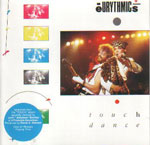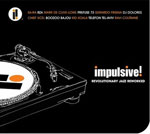
Of course, all the little anoraks who would once have been truffling through the Salsoul 12-inches in a draughty church hall are now just clicking together their own personalised Now That’s What iPod… selections. Meanwhile, record company Mini-Me’s see their profits evaporate into the digital smog and seek desperately some way to get ver kids into the buying habit again. The fact that the 50-year copyright window on mechanical royalties means that some prime rock ‘n’ roll is falling into the public domain has heightened their anxiety. How to squeeze the last droplet from the back catalogue before 2016, when anyschmuck can release Revolver and Pet Sounds?
Remember the complaints about the supposed CD con, which was, if you recall, that you were being asked to buy something you already owned, but in a new shiny format? The true sign of desperation was once considered to be issuing a compilation of exclusive remixes; this really meant that people were being asked to buy something they already had, only done worse. I still want to hide in the cupboard under the stairs when I recall my brief period of Eurythmics fandom, and my decision to purchase something called Touch Dance. It was essentially some of the tracks from Touch, with added stuttering. Since I’d already deduced that the original album signalled the start of the duo’s decline from glacial brilliance to AOR boorishness, this became my first experience of the “polishing a turd” concept but not, of course, the last.

So what we’ve got here is yet another refinement of the CD/remix stratey. Now you’ve got a marketing strategy so up its own arse, that people are going to buy something they’ve already got, in exactly the same format, because they’re so damned confused that they’ve forgotten they bought it three weeks ago.
And yet, and yet. Universal evidently see something in this, because they’ve done exactly the same to their Impulse! brand. Only this time it’s called Revolutionary Jazz Reworked, possibly because focus groups have discovered that the word “remix” conjures up traumatic memories of Annie Lennox stuttering. But it’s the same thing, essentially. And, of course, there’s a companion Unmixed album (although shouldn’t that be Unworked?) and, um, despite all my sarky, snarky comments about the losers who were duped into buying the Motown thing, I, er, I bought this one.
OK, it was just because I’d read somewhere about the guitarist Gabor Szabo and there were two tracks with him on and I’d always wondered what Pharoah Sanders sounded like, and it was cheap and yeah, I could have searched for the originals on eBay and coughed up 70 quid to some dodgy geezer in Brooklyn, but it was all here for under a fiver and… OK, shut up, right…
I bet bloody John Carney’s got the originals.
© 2006 Tim Footman